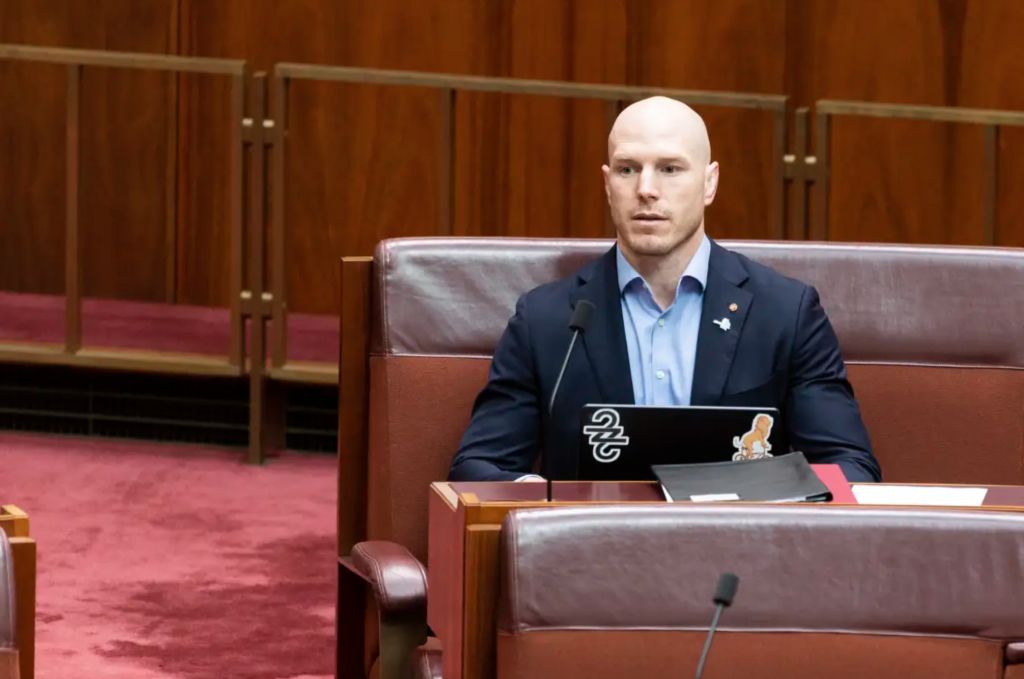
David Pocock strikes deal on payments to subcontractors
The federal government’s industrial relations bill will alleviate payment concerns of both big and smaller players in the construction industry as a result of negotiations with independent senator David Pocock
Independent ACT senator Mr Pocock, whose vote is critical for passage of the Secure Jobs, Better Pay bill, said on Sunday he would support Labor’s proposed changes in exchange for a number of concessions.
His support is contingent on reforms to payment protections for subcontractors, which are often left unpaid when a builder goes under.
He is trying to balance the push for statutory trusts to guard payments for small players in construction with demands of larger builders who oppose the same push, saying it would limit their cashflow.
“The amended industrial relations omnibus bill carves out not only residential and commercial but also civil construction from multi-employer bargaining,” Mr Pocock told The Australian Financial Review.
“While some big business groups have dismissed the significance of these and other amendments, I respectfully suggest they may be underestimating the extent of the new safeguards.”
Mr Pocock said his goal was to balance the needs of workers and businesses.
“I also want to make sure no one gets left behind, whether that is people outside the employment market or subcontractors,” he said.
“Ensuring subcontractors, and their staff have more protection, that they get paid in full, every time is critically important.”
Labor campaigned on promises to implement the recommendations of a 2017 federal government review into security of payments by John Murray, a former Master Builders Australia chief executive.
Mr Murray’s key recommendations were for a clear national set of rules to replace a varied mix of state and territory regimes, and the need for statutory trusts to ringfence the payments clients made to builders intended for subcontractors – who perform up to 90 per cent of work done on site – and to prevent head contractors using that money in general funds.
In Sunday’s agreement, Prime Minister Anthony Albanese agreed to “consider and respond” to the Murray Review recommendations within the current term of government.
Mr Murray said the government’s language sounded less committed than it did earlier, but said that with 86 recommendations in total – many of them technical in nature – not all may get up.
“It may be that ultimate piece of legislation the Commonwealth may produce may not incorporate every one of the remaining recommendations, but the two key recommendations – that is national legislation and statutory trusts – I’d be surprised if they shrank away from them,” he told the Financial Review.
The Australian Constructors Association, a lobby group for big contractors, welcomed a separate commitment by the government on Sunday to require the National Construction Industry Forum, a government-industry-union body created after September’s Jobs and Skills Summit, to advise it on measure to ensure contractors are paid accurately and on time.
But statutory trusts would not resolve the problem, chief executive Jon Davies said.
“Statutory trusts do not address the problem of inappropriate risk transfer or delays in approving claims and variations,” Mr Davies said. “Money can only be paid out of trust accounts if money is paid in by clients.”
Master Builders Australia, which has opposed statutory trusts in the past, did not reply to a request for comment.











